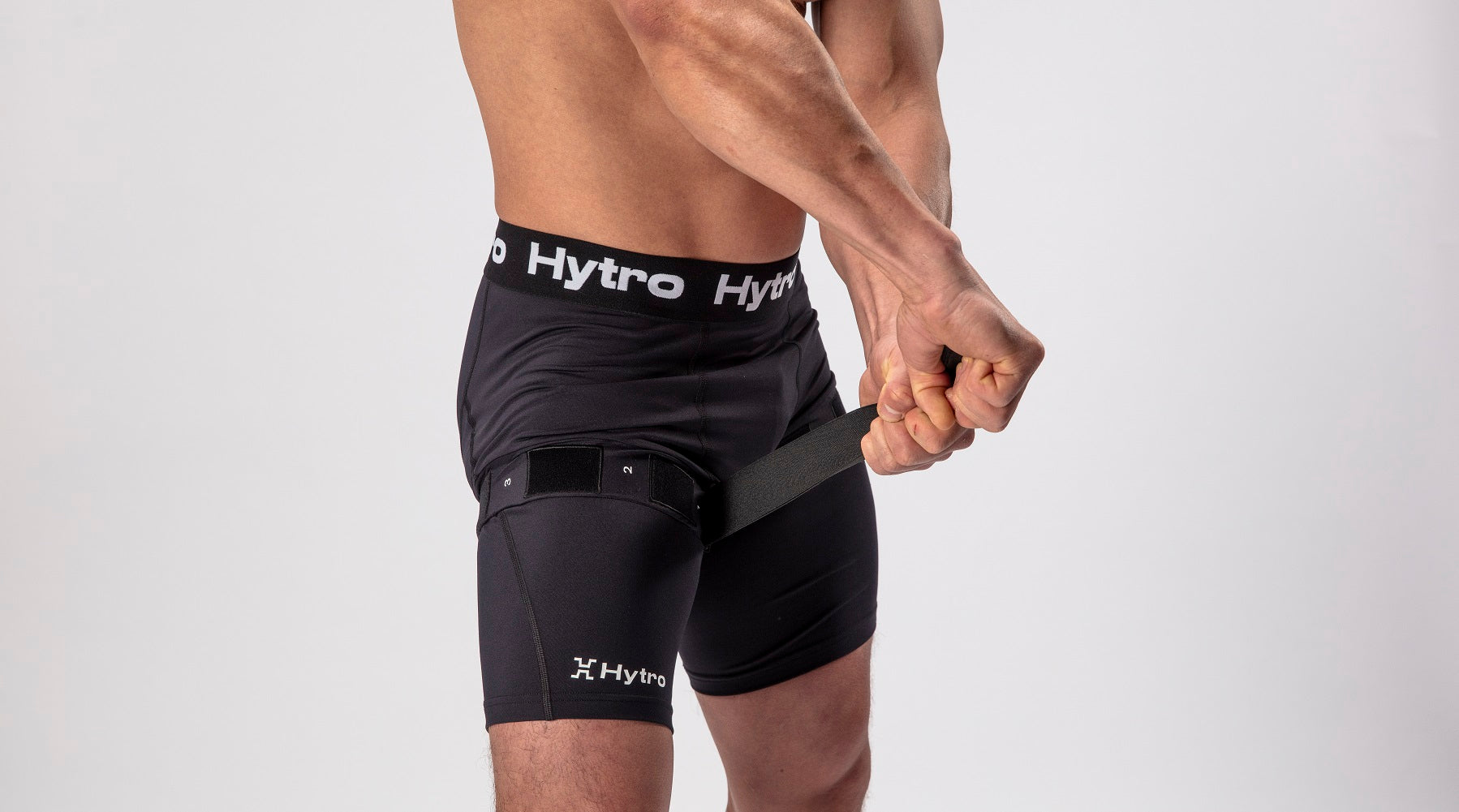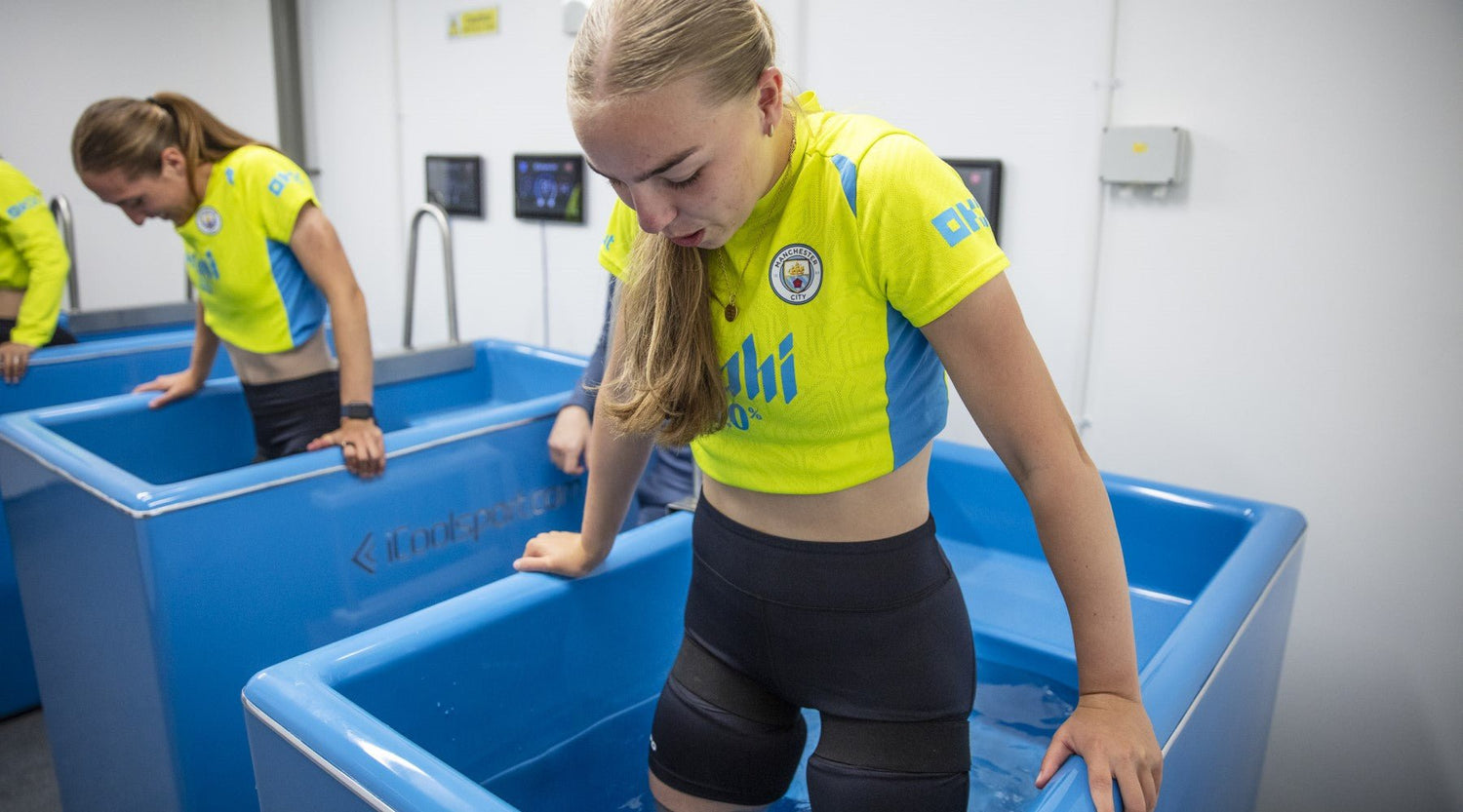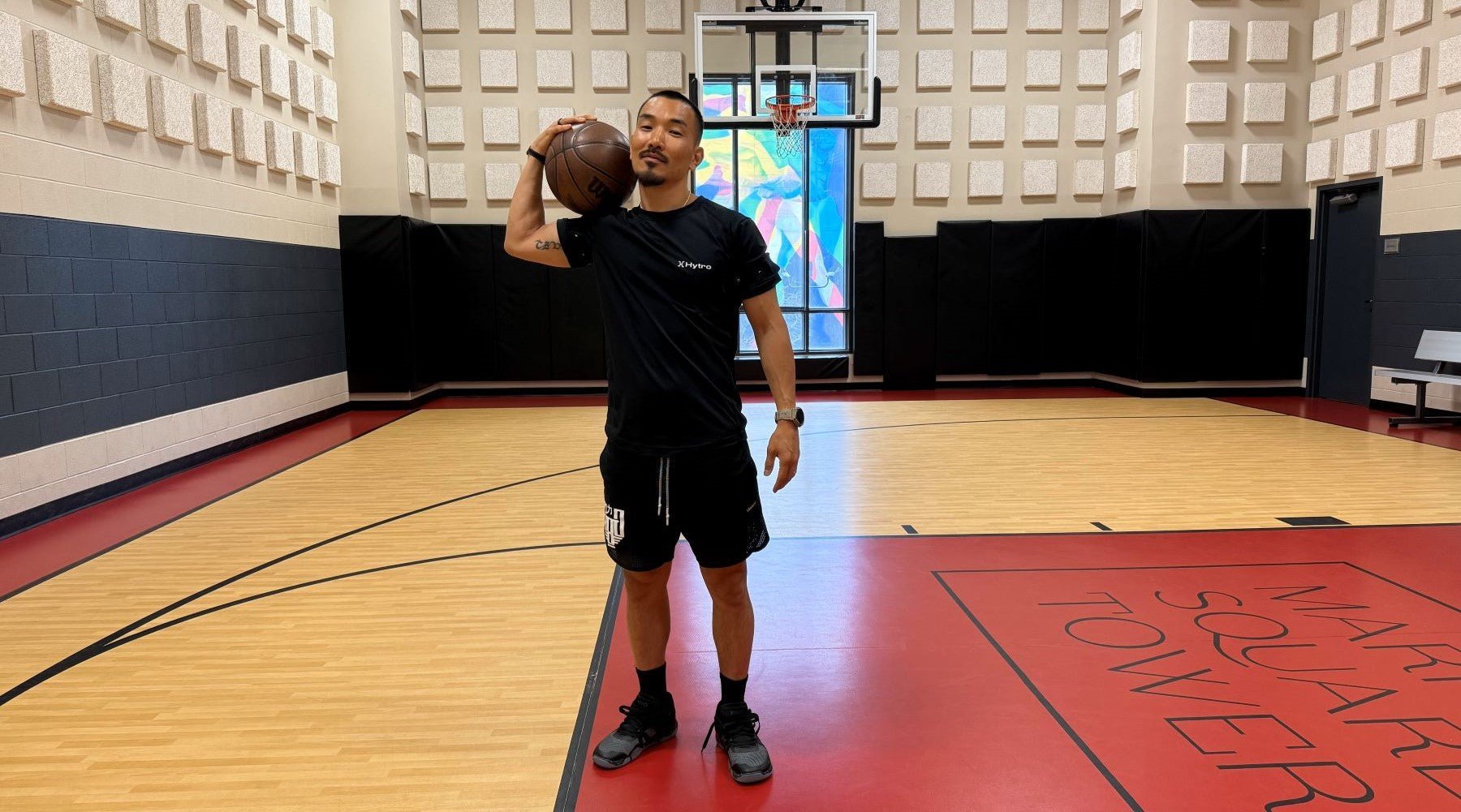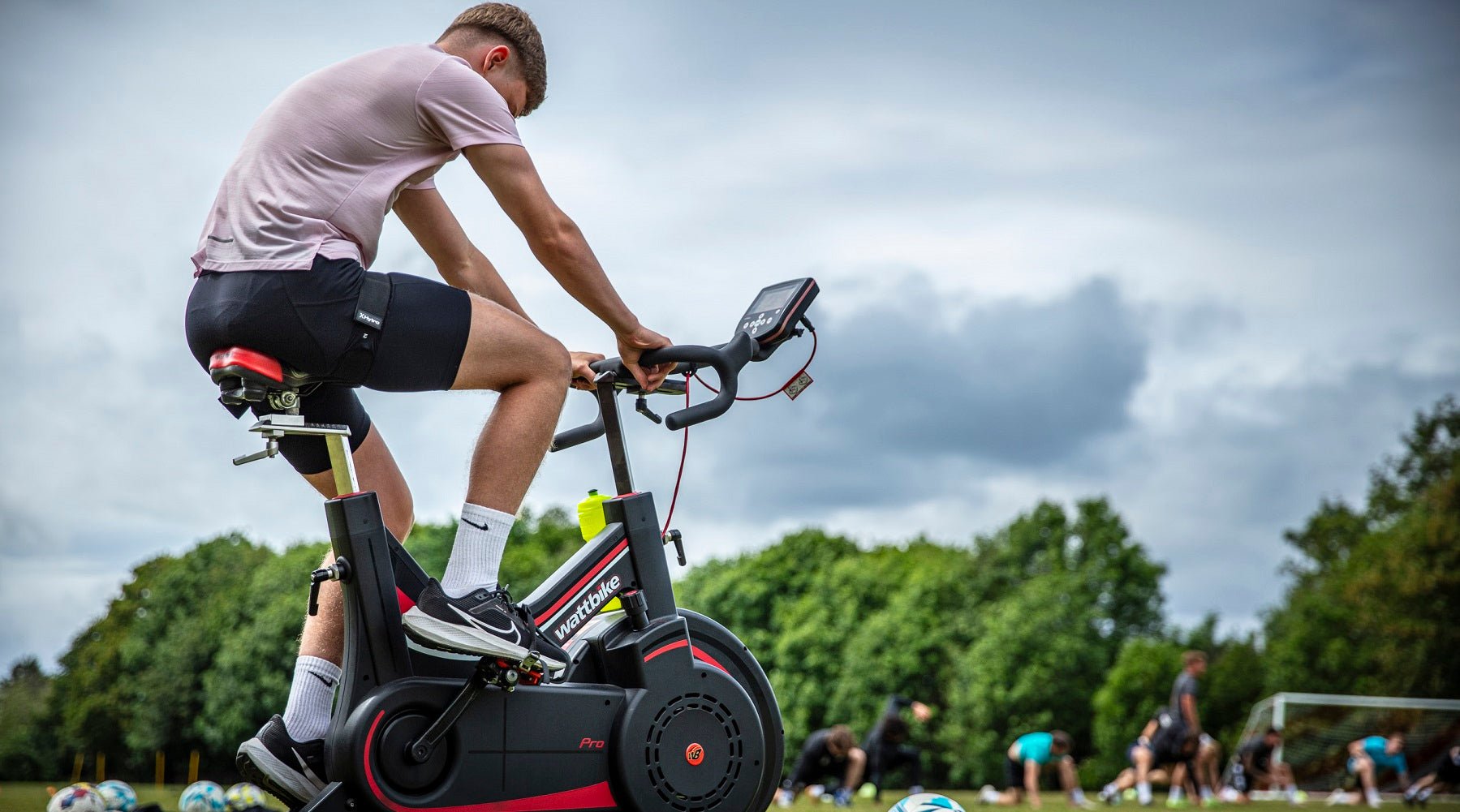At Manchester City Women’s Football Club, performance isn’t just something that happens on the pitch. It’s a culture built from the ground up with trust, science and innovation at the core.
In the latest episode of the Hytro Performance Podcast, Dr Warren Bradley sat down with Dan McPartlan, Head of Physical Performance, and Emma Deakin, Director of Performance Services, to hear how they’re elevating standards in elite women’s sport. From embracing Blood Flow Restriction (BFR) in recovery to building individual development plans that reflect the needs of every athlete, their approach is shaping what high performance looks like today, and tomorrow.
“High performance is everywhere,” says Emma. “It’s the nutritionist delivering gold-standard fuelling, it’s S&C, it’s physio. It’s the staff being curious, challenging each other, and all pushing for better.”

Starting with trust
For Dan and Emma, the cornerstone of performance is communication. Every strategy, from recovery to gym work, is framed around athlete buy-in. “They might not always agree with the decisions we make,” says Dan, “but they respect them, because we explain the why.”
That honest, transparent communication creates the space for open dialogue. It also lays the foundation for something powerful: true athlete autonomy.
Recovery that reflects the individual
Whether it’s cultural food preferences post-training or when to load, lift or rest, everything is personalised. Each athlete at City follows a bespoke programme including recovery. “Our gym and profiling plans are tailored, from the exercises to the timing of sessions and recovery’s the same. We present the best plan, they tell us what works for them, and we meet in the middle.”
This is where Hytro BFR becomes a key tool. It’s simple to apply, flexible, and, crucially, felt. “It’s visceral,” says Dan. “They feel it working. You get that behavioural anchoring straight away.”

From rehab to readiness
Because BFR is already a trusted part of the rehab process at City, its extension into recovery is natural. “It’s not alien. Most of the squad have used it in rehab. They know it works.”
That same confidence now extends into structured recovery protocols. On game day +1, players complete a low-cadence, low-wattage bike flush while wearing Hytro for three sets of five minutes, with two minutes rest in between. They also add a simple, yet effective passive recovery protocol immediately post-match following the same three sets of five minutes.
In addition to that, they integrate Hytro into their cold-water immersion sessions. Players strap in while submerged, then unstrap as they get out, creating a flushing effect designed to maximise recovery while enhancing strength adaptations.

Discussing the theoretical synergy between cold water immersion and BFR, Dan shared, “Cold can blunt strength gains, but BFR increases anabolic signals. If those opposing mechanisms complement each other… that could be game-changing.”
Evidence-led innovation
At City, innovation isn’t a buzzword, it’s embedded. With three PhDs running across ACL recovery, match demands and athlete health literacy, the team is committed to pushing the science of elite performance forward while keeping it grounded in reality so it can be applied. Emma explained, “We do research on the ground, in the environment our athletes train in. That way, it’s not just research for research, it’s useful.”
This evidence-led approach extends into how they monitor recovery, using both quarterly full blood draws and weekly point-of-care testing to inform personalised interventions based on inflammation, oxidative stress and readiness to train.
Learning across sports
Having worked in Olympic sports, triathlon, ballet and the military, Emma brings a unique lens to football and sees strength in borrowing. “No one sport does everything well. But triathlon plans brilliantly. Athletics knows how to manage travel. And ballet? The closest schedule to football I’ve seen.” By combining best practices across disciplines, the City women’s programme has built a performance model that feels fresh, yet firmly grounded in doing the basics, consistently, at the highest level.

A future built on curiosity
What’s next? For Dan, it’s not about chasing the shiny stuff. It’s about staying curious and doing the fundamentals, better than ever. “The most exciting thing isn’t tech. It’s seeing 70 girls playing football on a Saturday morning. That’s the future - participation, consistency, high-quality coaching from a young age.”
For Emma, it’s applying that same curiosity to female athlete health and understanding what players need from adolescence through to postpartum return. “There’s still so much to learn. But with more female-specific research and collaboration across sports, we’re getting closer.”
At Manchester City Women, performance doesn’t sit in one department. It’s lived across the entire team. It’s informed by evidence, shaped by experience and driven by trust. And with tools like Hytro BFR helping accelerate readiness and support recovery - on the bike, in the ice bath - they’re proving that when curiosity meets consistency, progress follows.





Leave a comment
This site is protected by hCaptcha and the hCaptcha Privacy Policy and Terms of Service apply.